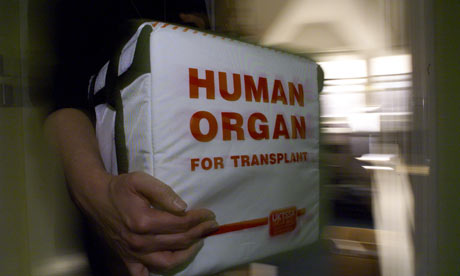Plaid Cymru's leader in Cardiff Council has been suspended by the party after posting comments on Twitter and Facebook that implied that certain organisations were "complicit" in child abuse for apparantly helping mothers breach court orders regarding access to children.
It's not as if he hasn't said something along these lines before. It's there in black and white in a Wales Home article back in July 2010. Why has it suddenly taken 18 months for McEvoy's views to make headlines?
Now I wouldn't exactly call myself a fan of Neil McEvoy - he does seem prone to foot-in-mouth incidents. The caustic nature of his remarks and subsequent suspension has overshadowed the big issue here.
On those wider issues, he's right.
The only thing he has to apologise for, is being offensive when describing illegal activity. The family court system in EnglandandWales is shambolic and - forgive me before I burn my boxers - discriminatory against men.
There are plenty of fathers out there who are utterly useless, violent and don't deserve children. Just because they don't want anything to do with their kids, it doesn't mean those who do want to play a productive role in bringing up their sons and daughters have to be tarred with the same brush.
Charities and the third sector shouldn't be exempt from criticism just because they do undoubted good work to protect women and children from abuse. If they break the law, they (and other charities) should be held to account. There is no "ends justify the means" defence to denying good fathers access to their children. If it's true and Neil McEvoy can back up his claims (I presume he can or he's going to look very, very silly), then it's illegal, and the practice needs to stop.
Just because children might be let down by both parents or one parent, it doesn't mean the judicial system and the voluntary bodies there to protect them have to let them down too. It's quite right that abuse against women and children is stamped out, however men increasingly need champions for our causes as well - especially in health, family law and domestic abuse.
Politicians that are quick to line up and condemn Neil McEvoy's comments would do well to remember that.
It's not as if he hasn't said something along these lines before. It's there in black and white in a Wales Home article back in July 2010. Why has it suddenly taken 18 months for McEvoy's views to make headlines?
Now I wouldn't exactly call myself a fan of Neil McEvoy - he does seem prone to foot-in-mouth incidents. The caustic nature of his remarks and subsequent suspension has overshadowed the big issue here.
On those wider issues, he's right.
The only thing he has to apologise for, is being offensive when describing illegal activity. The family court system in EnglandandWales is shambolic and - forgive me before I burn my boxers - discriminatory against men.
There are plenty of fathers out there who are utterly useless, violent and don't deserve children. Just because they don't want anything to do with their kids, it doesn't mean those who do want to play a productive role in bringing up their sons and daughters have to be tarred with the same brush.
Charities and the third sector shouldn't be exempt from criticism just because they do undoubted good work to protect women and children from abuse. If they break the law, they (and other charities) should be held to account. There is no "ends justify the means" defence to denying good fathers access to their children. If it's true and Neil McEvoy can back up his claims (I presume he can or he's going to look very, very silly), then it's illegal, and the practice needs to stop.
Just because children might be let down by both parents or one parent, it doesn't mean the judicial system and the voluntary bodies there to protect them have to let them down too. It's quite right that abuse against women and children is stamped out, however men increasingly need champions for our causes as well - especially in health, family law and domestic abuse.
Politicians that are quick to line up and condemn Neil McEvoy's comments would do well to remember that.














